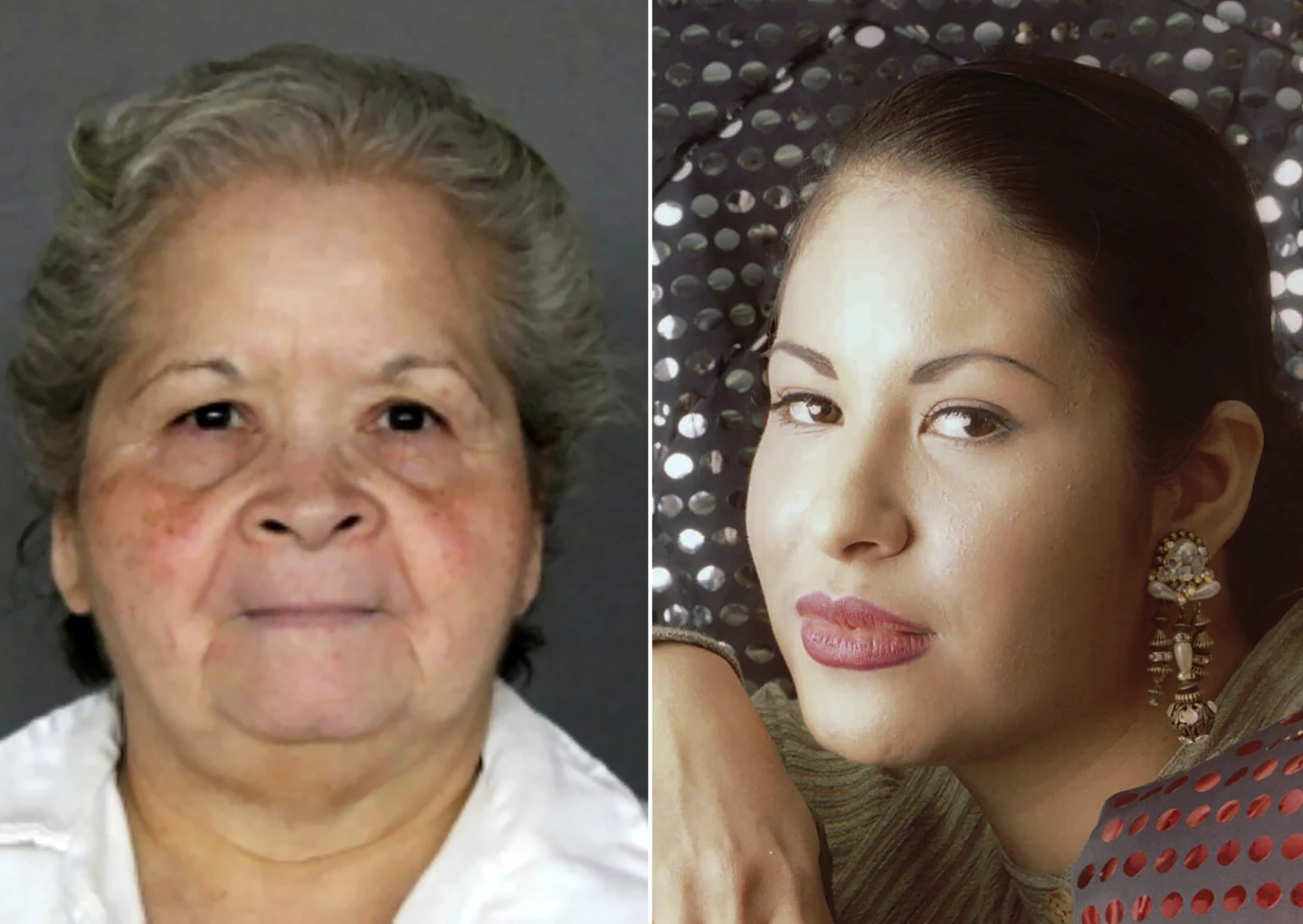
In a decision that has rekindled memories of a tragic loss in the music world, Yolanda Saldívar, the woman convicted of killing Tejano music icon Selena Quintanilla-Pérez, has been denied parole. The Texas Board of Pardons and Paroles announced their decision on Thursday, March 27, 2025, ensuring that Saldívar will remain behind bars for at least another five years.
The Fateful Day That Shook the Music World
On March 31, 1995, the vibrant world of Tejano music was forever changed when Selena, known as the “Queen of Tejano,” was fatally shot at a Days Inn motel in Corpus Christi, Texas. The singer, just 23 years old at the time, was on the cusp of crossing over into the English-language pop market, poised to become a global superstar.
Saldívar, who was 34 at the time, had been the president of Selena’s fan club and the manager of two of her clothing boutiques. The relationship between Selena and Saldívar had soured in the months leading up to the tragic event, with Selena’s family accusing Saldívar of embezzling money from the fan club and boutiques.
The Shooting and Its Aftermath
The events of that fateful day unfolded rapidly. Selena had gone to meet Saldívar at the motel to retrieve financial documents. What should have been a routine business meeting turned deadly when Saldívar shot Selena in the back with a .38-caliber revolver.
Despite being critically wounded, Selena managed to run to the motel lobby, leaving a trail of blood behind her. Before losing consciousness, she identified Saldívar as her assailant to motel employees. Selena was rushed to the hospital but succumbed to her injuries, dying from blood loss and cardiac arrest.
A Nation in Mourning
The news of Selena’s death sent shockwaves through the music industry and devastated her legion of fans. More than 50,000 people lined up to view her body before she was laid to rest on April 3, 1995, just 13 days shy of her 24th birthday.
The Trial and Conviction
Saldívar’s trial, moved to Houston due to the intense publicity surrounding the case, began in October 1995. During the proceedings, Saldívar claimed that she had intended to kill herself and that the gun had gone off accidentally when Selena tried to leave the room.
However, the jury was not convinced by Saldívar’s defense. On October 23, 1995, they found her guilty of first-degree murder. She was sentenced to life in prison with the possibility of parole after 30 years.
Life Behind Bars
While in prison, Saldívar has not been idle. The former nurse obtained her paralegal certification and an associate degree in criminal justice. She has also filed numerous civil rights complaints alleging mistreatment within the prison system and has assisted fellow inmates with legal petitions.
The Parole Decision
As Saldívar’s 30-year mark approached, the possibility of her release loomed. However, after careful consideration, a three-person panel of the Texas Board of Pardons and Paroles voted to deny her parole.
The board cited the “nature of the offense” as the primary reason for their decision. They stated that the crime “has elements of brutality, violence, assaultive behavior or conscious selection of victim’s vulnerability indicating a conscious disregard for the lives, safety, or property of others, such that the offender poses a continuing threat to public safety.”
Reactions to the Decision
The decision to deny Saldívar parole has been met with relief and gratitude from Selena’s family and fans. In a statement posted on social media, Selena’s family and her widower, Chris Pérez, expressed their appreciation for the board’s decision.
“While nothing can bring Selena back, this decision reaffirms that justice continues to stand for the beautiful life that was taken from us and from millions of fans around the world far too soon,” they said.
Selena’s Enduring Legacy
Even 30 years after her untimely death, Selena’s impact on the music industry and popular culture remains profound. She was one of the first Mexican-American artists to break into the mainstream music scene, shattering barriers for women in Latin music.
Her hits, including “Dreaming Of You” and “No Me Queda Mas,” continue to resonate with fans old and new. In 1994, she won the Grammy Award for Best Mexican-American Album for “Live,” cementing her place in music history.
Selena’s life story was immortalized in the 1997 biopic “Selena,” starring Jennifer Lopez, introducing a new generation to the Tejano queen’s music and story.
Looking Ahead
With this latest decision, Saldívar will not be eligible for parole again until 2030. As she continues to serve her life sentence, the memory of Selena lives on through her music, her fans, and the barriers she broke for Latin artists in the music industry.
The denial of Saldívar’s parole serves as a reminder of the lasting impact of Selena’s tragic death and the enduring pain felt by her family, friends, and fans. It also reaffirms the justice system’s commitment to holding accountable those who commit violent crimes, even decades after the fact.
As we look to the future, Selena’s legacy continues to inspire new generations of artists and fans, ensuring that the Queen of Tejano’s dream lives on, even as justice for her untimely death is upheld.